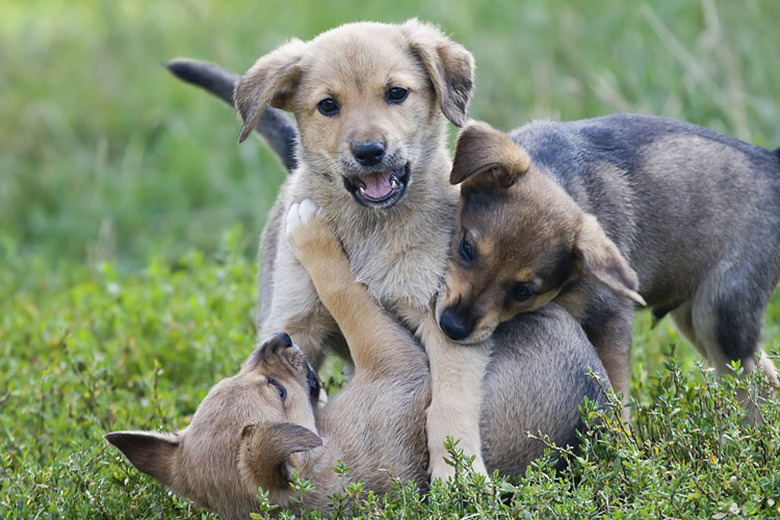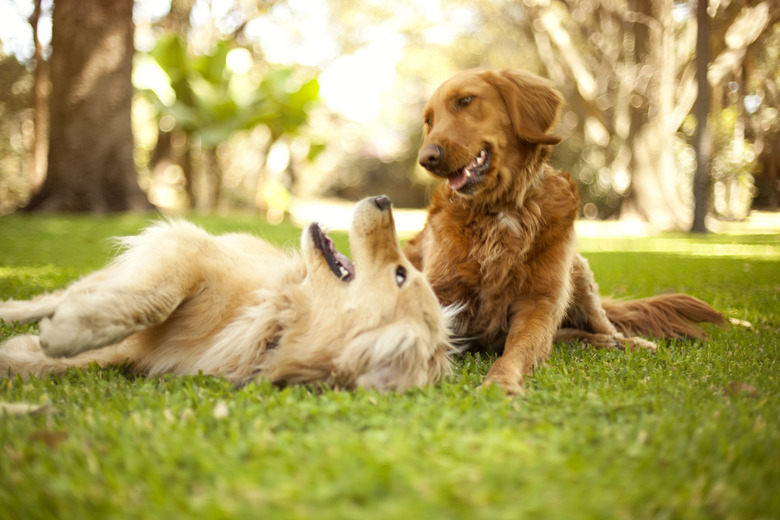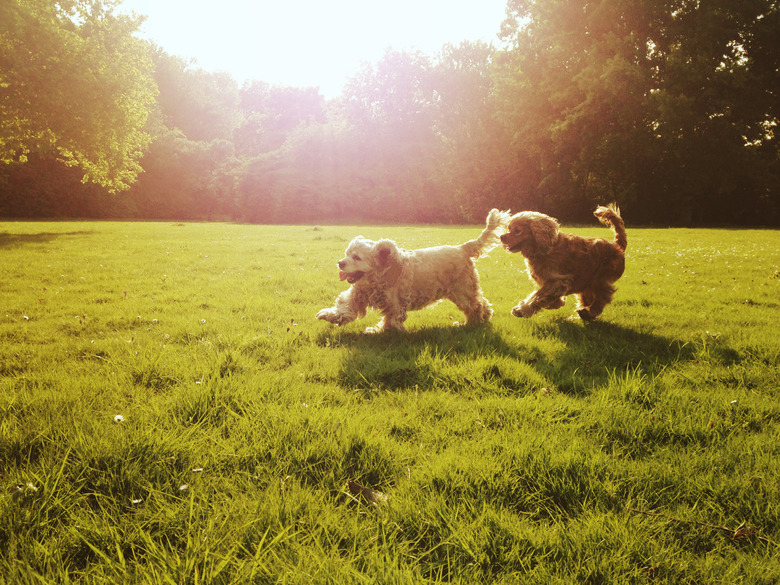How To Stop Sibling Puppy Fights
If your sibling puppies are fighting, you have a normal family of dogs. Depending on the severity and frequency of the dogs' aggressive behavior, you may need to break them of this habit. Understanding how to stop puppy siblings from fighting starts with understanding which pup is the problem and the possible causes. Using a few tried and true training methods, you can soon have your pups playfully interacting without excessive aggression and fighting.
Make sure it’s fighting
Make
sure it's fighting
Nipping, barking, knocking each other over, and chasing are normal for puppies. They are experiencing most things for the first time, and they're excited and want to play. Even some growling can be an indication of excitement rather than anger. Observe your dogs to see if they are simply roughhousing or if there is real teeth-baring, fixed stares, upward-pointed tails, and threatening growls. Some forms of growling, snarling, or nipping are canine communication that's natural and necessary.
Look for patterns
Look
for patterns
You might find that your pups only fight when certain situations are present, such as at feeding time or when playing with toys. Dogs like routine and don't like to share. That means each pup should eventually get his own bed, water and food dish, blanket, and toys. This will cost you more but will reduce anxiety and fights. Noting patterns will also help you work with a trainer later if you can't solve the problem.
Who is the aggressor?
Who
is the aggressor?
Try to determine if one dog is starting most of the fights. This might indicate that this puppy is nervous, fearful, anxious, jealous, or just wants to become the dominant dog. In some cases, two dogs want to be in charge. If you find that one of the dogs is clearly the instigator, you can separate her from the other dog or dogs and begin training her by herself.
Establish your control
Establish
your control
You'll need to use voice commands and give instruction to your dogs when training them. If you haven't established yourself as their pet parent and haven't taught them commands, you won't be able to use any commands when the dogs start fighting. If necessary, train the dogs separately to help them learn, understand, and obey your commands.
Be careful of interceding
Be
careful of interceding
At some point, dogs who live or play together need to determine who is the more dominant dog. If you try to break up fights or try to help the submissive dog become dominant, you can harm the dogs by not letting their natural relationship develop.
As long as the dominant dog is not injuring the submissive dog, let the relationship develop. Once one dog submits to another, he will feel safer around the dominant sibling who is now in charge.
One problem in trying to separate fighting dogs is that you might get bitten, or the dog might turn his aggression on you. Don't grab a dog's collar or the nape of the neck during a fight.
Separate the dogs
Separate
the dogs
If letting things play out naturally doesn't work, try separating the dogs and working with them one at a time. Bring the pets back together in the same situation (such as feeding or playing with a dog) and see if that triggers the aggressive behavior in the dominant dog. This will help you pinpoint the situation and try to help alleviate the dominant dog's fear, which is probably causing the issue.
If you separate the dominant dog long enough, she might get lonely for her sibling and choose to end the aggressive behavior rather than lose her companionship. Don't do this to prevent common dominant behavior — only when serious fighting is involved. You can also try to redirect the dogs' attention if you see they are about to fight. You can do this with a voice command to one of the dogs, by introducing a toy, or by standing between the two dogs.
If you're worried about biting and injury, use a muzzle when walking dogs together until the problem is resolved. Use leashes that let you keep the dogs apart when trouble starts.
Use positive reinforcement
Use positive
reinforcement
When training dogs, avoid yelling at them, threatening them, or even giving them light smacks to get them to behave how you want. This can confuse pets and cause them to change their behavior only to avoid your wrath. When you're not around, they'll go back to their old behavior. Instead of punishing dogs for bad behavior, reward them for good behavior with a treat, a caress, praise, or a kiss.


